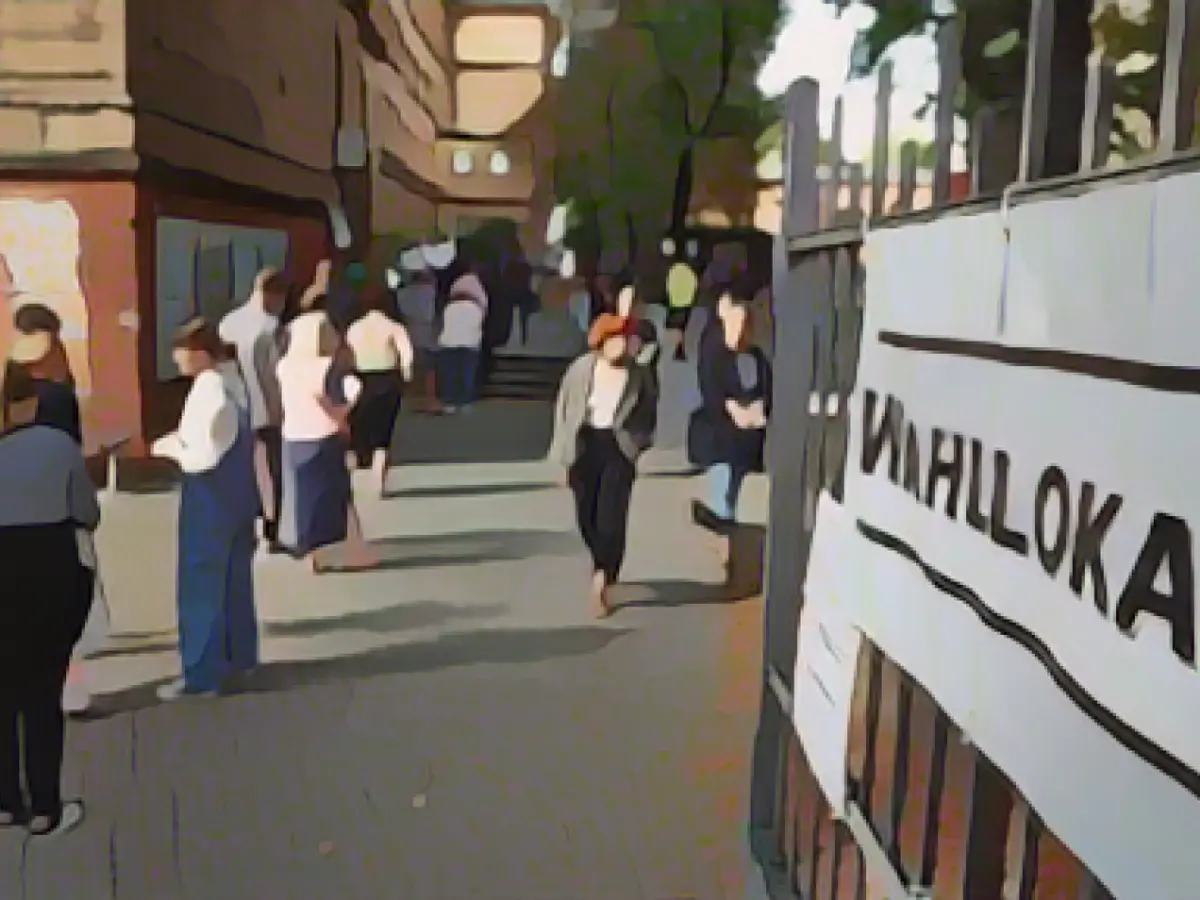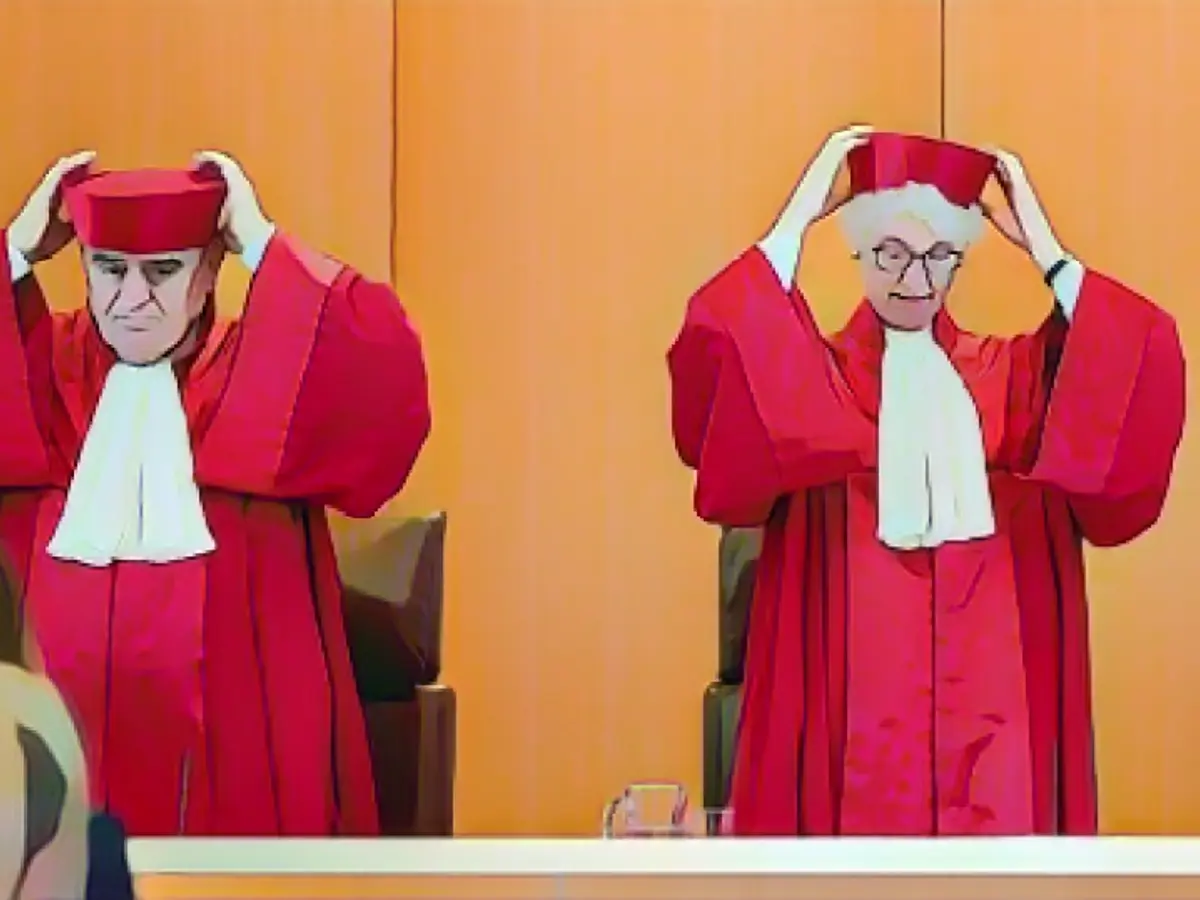Partially Redoing Berlin's Bundestag Vote: February 11 Election Day
The capital city of Berlin experienced some challenges during the September 2021 Bundestag elections. Long queues lurked outside numerous polling stations due to missing ballot papers and an insufficient number of booths. Many stations stayed open beyond their scheduled closing time of 6 p.m., when predictions about the election outcome first surfaced.
While there were more than 1,700 objections to the election process, including from the former Federal Returning Officer, the Bundestag decided, in November 2022, that a partial repeat of the election was necessary in 431 Berlin constituencies due to voting errors. The CDU/CSU parliamentary group, unsatisfied with this decision, turned to the Federal Constitutional Court for a larger overhaul.
Ultimately, the court denied their petition, instead ruling that the Bundestag had not adequately detailed the election process. However, it corrected a few constituency-specific errors, resulting in a need for a repeat election in 455 of Berlin's 2256 constituencies, scheduled for February 11, 2024.
Lengthy queues don't automatically equate to an electoral error, according to judges. Instead, they represent inadequate resources, like too few booths or ballot papers, and thus breach electoral regulations. Wait times surpassing one hour indicate such a shortcoming. Similarly, stations opening after 6.30 p.m. indicate insufficient equipment.
The court also dismissed an electoral review complaint from the AfD parliamentary group, who requested a complete rerun of the Bundestag election in Berlin. Berlin's state election director, Stephan Bröchler, announced the rerun date and proceedings.
Political consensus believes the partial repeat won't significantly alter the Bundestag's composition. SPD MP Johannes Fechner noted this shouldn't affect the majority at all. The Left Party, which gained entry to the Bundestag thanks to two direct mandates in Berlin, expressed relief.
Regarding the court's ruling, Dietmar Bartsch, former leader of the Left Party parliamentary group in the Bundestag, told the Rheinische Post that they will maintain their presence in the German Bundestag. FDP vice-chairman Wolfgang Kubicki applauded the decision, stating that electoral mistakes must have consequences when doubt arises.
The GFP's Nina Stahr and Philmon Ghirmai expressed the will to scrutinize the situation further and promote structural improvements to election preparations and conduct. Berlin AfD leader Kristin Brinker welcomed the ruling, emphasizing the importance of transparent elections.
Related Articles
- The electoral redo in 455 out of Berlin's 2256 constituencies will take place on February 11, 2024, due to defects detected during the 2021 election.
- The Federal Constitutional Court categorically refused a city-wide redo, deeming the Bundestag decision mostly valid, while pointing out that the parliament had failed to clarify the election process thoroughly.
- Berlin's state election director, Stephan Bröchler, announced that the redo will take place as planned on February 11, 2024.
- The Federal Constitutional Court announced the rejection of the AfD parliamentary group's demand for a full Berlin Bundestag election rerun, as they lacked sufficient reasoning to support the demand.
- The CDU/CSU parliamentary group pushed for a repeat of half of Berlin's constituencies when the second votes for party lists, but the Federal Constitutional Court rejected their request.
- The modified Bundestag election on February 11 will not drastically alter the political landscape, as politicians generally expect minimal changes to the majority composition.
Source:
Additional Insight:
The election errors in Berlin, which led to a partial repeat, showcased the importance of adhering to electoral regulations and ensuring the fairness of the electoral process. The Federal Constitutional Court's role lies in ensuring that electoral laws are followed and irregularities are rectified constitutionally. In this instance, the Council of Elders took the responsibility of restoring integrity to the electoral process. The events served as a reminder that safeguarding the democratic process is of paramount importance, and electoral mistakes, however infrequent, should be addressed promptly and decisively.






